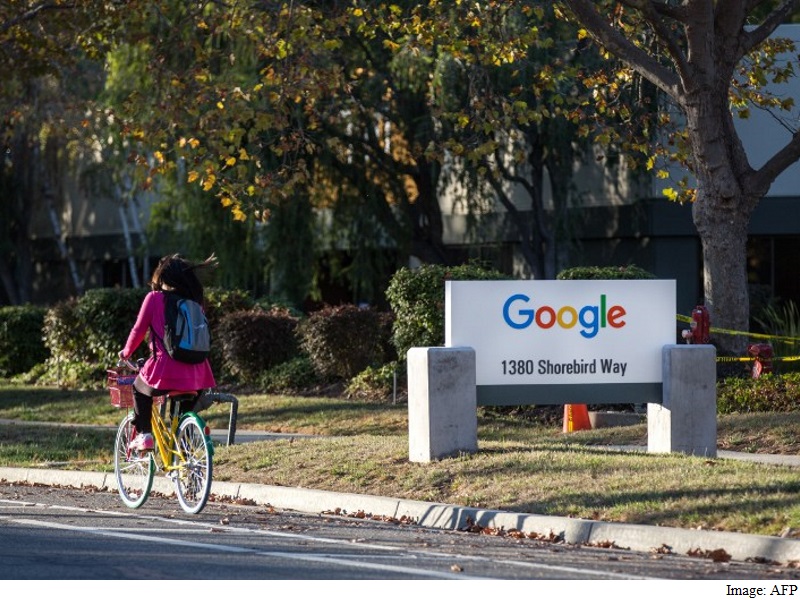- Home
- Others
- Others News
- High Tech Firms in the US Lag in Diversity, EEOC Says
High Tech Firms in the US Lag in Diversity, EEOC Says

While the high tech industry is a major source of economic growth in the United States, it generally lags well behind other parts of the private sector in the employment and advancement of women, people of colour and older workers.
That's the take-away from an Equal Employment Opportunity Commission forum in Washington last week on "Innovation Opportunity: Examining Strategies to Promote Diverse and Inclusive Workplaces in the Tech Industry."
An agency study, "Diversity in High Tech," found high-tech firms generally are whiter and more male dominated than other parts of the private sector.
"Compared to overall private industry, the high-tech sector employed a larger share of whites (63.5 percent to 68.5 percent), Asian Americans (5.8 percent to 14 percent) and men (52 percent to 64 percent), and a smaller share of African Americans (14.4 percent to 7.4 percent), Hispanics (13.9 percent to 8 percent), and women (48 percent to 36 percent)," the report said.
In the executive ranks, the disparities were even starker. At 83 percent, this top level is almost all white. And among the white executives, 80 percent are men.
"The high-tech sector has been an innovation leader, transforming how we live our lives today and driving solutions to some of our greatest societal challenges. Let's harness that creative thinking and entrepreneurship to ensure that the talents of all Americans are fully utilized in this vital industry," said EEOC Chair Jenny R. Yang. "Standing still is not an option."
Though much of the attention focused on women and people of colour, Laurie A. McCann, an AARP Foundation attorney, zeroed in on pervasive age discrimination. Citing a Fortune magazine article, she said "the median age of employees at Twitter is just 28, and at Facebook, and Google, the median age is 29. When compared to a median age of 42 for the workforce overall, the message is stark -- older workers are persona non grata in technology."
Even worse, "the most amazing fact is that the industry is so unapologetic about it. Rather than try to hide or explain away the lack of age diversity in the sector, they boast about it," she said, pointing to industry firms and executives who openly indicate a preference for those under 35 or twenty-somethings or digital natives.
"This distinction (digital natives) is clearly age-based and can be used to screen out older applicants," McCann said.
Kweilin Ellingrud, a partner with the McKinsey & Company consulting firm, told the forum that "it is critical that women and minorities play a significant role in technology" for three reasons:
- "We will not fill the talent shortages that we face unless we include women and minorities more actively
- "We will not harness the power of technology to tackle a broader set of societal challenges unless the technology workforce better reflects society
- "Equality is an important principle for all of us. . .It is not only the right thing to do, it is the smart thing to do for the American people, our companies, and our nation as a whole."
In order to fight bias in any form, Ellingrud said "some companies beyond technology are putting as much as 15 percent of their senior leadership compensation at risk and tying it to hitting diversity targets."
Like Ellingrud, Benjamin Todd Jealous, the immediate past president and CEO of the NAACP and now a partner at Kapor Capital, pointed to the dangers of unconscious bias in the hiring process in his written statement. Among his 10 suggestions for increasing diversity, number 1 was: "Remove names and schools from résumés. Hidden bias is very powerful and very real. Studies show that traditional 'Black' sounding names get half the callbacks than 'White' sounding names, even when the résumés are otherwise identical. Removing names also works to mitigate gender bias."
He also suggested that companies "apply a 'distance travelled' metric when evaluating candidates. For a young scholar from a tough neighbourhood, getting into and thriving at a minor state school means overcoming all sorts of adversity, and those real-life skills are enormously valuable to your company. Keep that in mind when you're weighing strengths and weaknesses."
Yet, too often in school, females and people of colour have been discouraged from pursuing science, technology, engineering and math (STEM).
Erin M. Connell, a partner with the Orrick law firm in San Francisco, said "historically, women and minorities were less likely to study computer science or major in STEM fields, largely because they were discouraged, or not encouraged, to do so. . ..This education gap has led to a skills gap, which continues to be the primary driver of hiring disparities in tech jobs today. Unfortunately, statistics illustrate that the problem is not getting better, and in some cases, it is actually getting worse."Get your daily dose of tech news, reviews, and insights, in under 80 characters on Gadgets 360 Turbo. Connect with fellow tech lovers on our Forum. Follow us on X, Facebook, WhatsApp, Threads and Google News for instant updates. Catch all the action on our YouTube channel.
Related Stories
- Samsung Galaxy Unpacked 2025
- ChatGPT
- Redmi Note 14 Pro+
- iPhone 16
- Apple Vision Pro
- Oneplus 12
- OnePlus Nord CE 3 Lite 5G
- iPhone 13
- Xiaomi 14 Pro
- Oppo Find N3
- Tecno Spark Go (2023)
- Realme V30
- Best Phones Under 25000
- Samsung Galaxy S24 Series
- Cryptocurrency
- iQoo 12
- Samsung Galaxy S24 Ultra
- Giottus
- Samsung Galaxy Z Flip 5
- Apple 'Scary Fast'
- Housefull 5
- GoPro Hero 12 Black Review
- Invincible Season 2
- JioGlass
- HD Ready TV
- Laptop Under 50000
- Smartwatch Under 10000
- Latest Mobile Phones
- Compare Phones
- OPPO A6v 5G
- OPPO A6i+ 5G
- Realme 16 5G
- Redmi Turbo 5
- Redmi Turbo 5 Max
- Moto G77
- Moto G67
- Realme P4 Power 5G
- HP HyperX Omen 15
- Acer Chromebook 311 (2026)
- Lenovo Idea Tab Plus
- Realme Pad 3
- HMD Watch P1
- HMD Watch X1
- Haier H5E Series
- Acerpure Nitro Z Series 100-inch QLED TV
- Asus ROG Ally
- Nintendo Switch Lite
- Haier 1.6 Ton 5 Star Inverter Split AC (HSU19G-MZAID5BN-INV)
- Haier 1.6 Ton 5 Star Inverter Split AC (HSU19G-MZAIM5BN-INV)

















